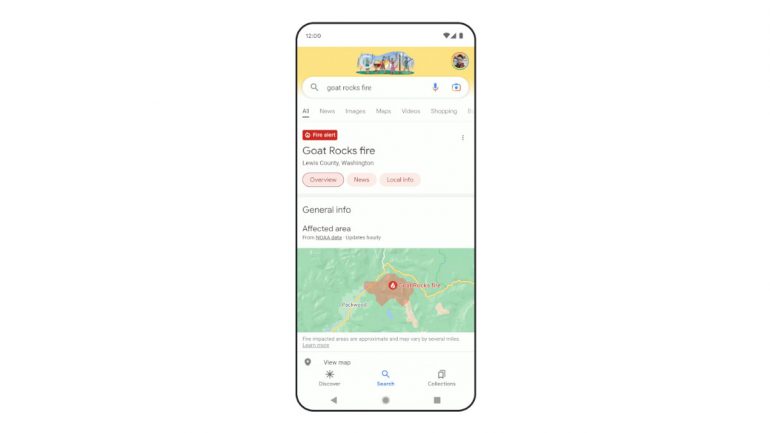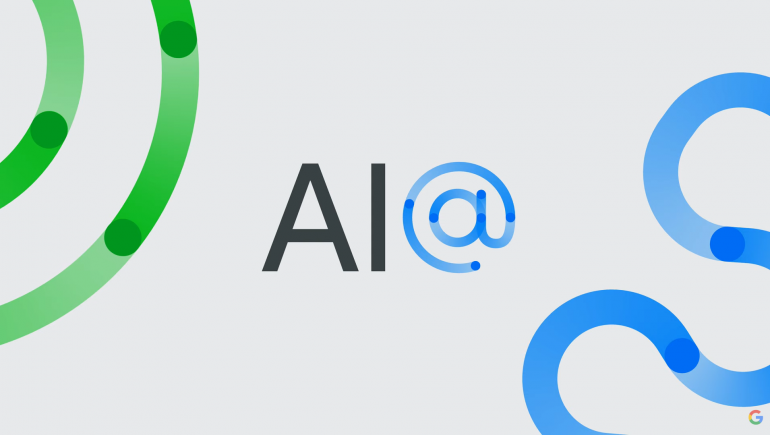Google has recently shared its advancements in AI (artificial intelligence) in different fields during the AI@ 2022 event. Among these fields include weather forecasting, language, and research to name a few.
Here are some of the highlights.
Solving Humanity’s Challenges with AI
Two of the highlighted AI advancements were flood forecasting as part of Google’s broader crisis response and Wildfire Tracking.
The Flood Forecasting initiative was started in 2017 to help combat the catastrophic damage from floods by equipping people with accurate and detailed alerts. Last year, the company sent 115 million flood notifications to 23 million in India and Bangladesh over Google Search and Maps.
Now, the company is expanding to three Latin American/Asian and 15 African countries. These are namely:
- Latin America/Asia – Brazil, Colombia, Sri Lanka
- Africa – Burkina Faso, Cameroon, Chad, Democratic Republic of Congo, Ivory Coast, Ghana, Guinea, Malawi, Nigeria, Sierra Leone, Angola, South Sudan, Namibia, Liberia, South Africa
Additionally, the company is launching Google FloodHub, a new platform that shows when and where floods may occur. The information will also be brought to Google Search and Maps in the future to help more people.

Wildfire Tracking, on the other hand, uses machine learning using satellite imagery to help identify and track wildfires in real-time. Additionally, it allows the prediction of how these will evolve to help support firefighters and other first responders.
Wildfire Tracking is now live in Australia, the US, Canada, and Mexico.
AI for Language Inclusivity
Google is also announcing the 1,000 Languages Initiative. It is a research project to build an AI model that will support the 1,000 most spoken languages of the world.
To provide an AI-based language technology, the models need to be trained on representative content of the world.
It is a long-term effort that focuses on three factors:
- Multimodality – It will use the multimodal capabilities of advanced models to meet people where they are. To kick this off, Google developed a Universal Speech Model (USM) trained in over 400 languages.
- Engaging the broader community – The program and the company will work directly with communities across the world to source language data. An example of this is in South Asia where the company is working actively with local partners to eventually collect representative audio samples across the region’s dialects and languages.
- Improving the products – Google plans to improve its products like YouTube, Gboard, and Translate, to name a few to make it easier for people to use technology in their native language.
Getting Creative with AI
Google has also introduced AI to some generative AI research. Among these include Text to Video Models, AI Test Kitchen Season 2, Wordcraft Writers Workshop, to name a few.
Text to Video Models
- Imagen and Parti were introduced earlier in Summer. These are two different models that both have an impressive ability to generate images from text prompts
- Imagen Video uses diffusion to generate great-looking individual images to yield short videos.
- Phenaki uses a sequence learning technique that generates a series of tokens over time.
- When combined, you get the best of both worlds.
AI Test Kitchen Season 2
- AI Test Kitchen is a place to learn about, experience, and give feedback on Google’s emerging Generative AI technology.
- AI Test Kitchen showcased the capabilities of LaMDA.
- The second AI Test Kitchen will sow off text-to-image generation through two demos.
Wordcraft Writers Workshop
- Google introduced LaMDA last year and Wordcraft is a project built on this. Wordcraft explores text generation for writing.
- The company teamed up with professional writers who used the editor to create a volume of short stories. These can be read as part of the Wordcraft Writers Workshop.

“Our advancements in neural network architectures, machine learning algorithms and new approaches to hardware for machine learning have helped AI solve important, real-world problems for billions of people. Much more is to come. What we’re sharing today is a hopeful vision for the future—AI is letting us reimagine how technology can be helpful. We hope you’ll join us as we explore these new capabilities and use this technology to improve people’s lives around the world.”
Jeff Dean, Google Senior Fellow and Senior Vice President of Google Research and Google Health
Source: Gadget Pilipinas

0 Comments